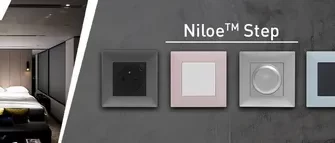Technical translation is necessary for the transfer of special scientific and technical literature from one language to another. It can be articles, news from various fields of science and technology, documentation for various devices, equipment. When translating, it is important not to distort the meaning of what is written, preserve the accuracy and consistency of the author's thoughts. To work on the text, machine translation is not enough, because it is necessary to take into account many nuances of this type of service. Read more about the peculiarities of technical translation and the importance of contacting highly specialized translators.
What is technical translation??
Technical progress, new research and development lead to the need to look for sources of information, partners outside our country. Every day, a lot of materials about advanced technologies appear on the Internet, research methods, scientific and technical achievements. Most of the information is available in a foreign language, and in order to understand the content of what is written, it is necessary to correctly translate the primary sources.
Work on the text, necessary for that, to exchange scientific and technical information between people from different countries, called technical translation. In simple words, this is the translation of literature, to which belong:
- documentation;
- notes;
- scientific articles and news;
- materials of scientific research;
- works of scientists;
- technical literature.
Technical translation is divided into:
- oral;
- full written;
- referential (presentation of a large volume of material in a compressed form);
- annotative (compilation of a short instruction of critical focus based on the original text);
- translation of titles.
Most often, a full technical translation of the text is required, which is characterized by the use of a formal and logical collective style, without emotional colors, accurate and faceless. The vocabulary of the technical text is characterized by a large number of terms and abbreviations, and grammar is dominated by specific and established grammatical norms (impersonal and vaguely personal constructions, impersonal forms of the verb, passive turnovers).
What topics does technical translation cover??
Technical translation covers various fields of knowledge, it includes work on texts in the following areas:
- manuals for the operation of complex devices, equipment, household appliances, cars, agricultural machinery, industrial equipment;
- technical tasks, drawings and construction project;
- project documentation for tenders and international competitions;
- agreements, contracts, agreements with foreign sponsors, partners in cooperation, related to machinery or special equipment;
- manuals with service recommendations, repair of machines and mechanisms;
- diploma theses, theses, other scientific works;
- patents, certificates, license, permits;
- computer hardware and programming.
Most often, students and employees of higher educational institutions and scientific organizations apply for technical translation, managers and employees of enterprises.
What is the difficulty of technical translation?
Work on the text, which translates, requires a combination of knowledge of a foreign language with knowledge of a certain field, in which the text is written. This is the main difficulty of technical translation, since it is problematic to find a specialist translator with a narrow profile.
When faced with the task of technical translation for the first time, most often scientific and technical literature is translated by universal translators or technical specialists, which use dictionaries and online assistants in the process. This approach leads to poor quality results, since technical translation has its own peculiarities:
- Accuracy and brevity of conveying the main content of the written text — the use of emotional colors and free judgments is unacceptable, otherwise the essence of the original will be distorted. It is better to avoid complex structures and turnovers, that make it difficult to perceive thoughts, that are transmitted.
- A large number of terms - it is important to save all the terminology, adhere to its unity, so that the text remains reliable and literate, was clear to specialists. The same terms may have several equivalents in another language, therefore, the translator must have a thorough command of the terminology in the field, translations in which he is engaged.
- Abbreviations, abbreviations – technical texts use a lot of abbreviations and acronyms, which correspond to many different values. This should be taken into account when working on the material.
- Technical standards and norms - it is necessary to keep certain rules and norms during translation, it is important to translate briefly, but meaningful and informative.
- Special phrases and expressions – specific phrases may appear in the original text, which have no analogue in another language. The translator has to select wording that is appropriate in terms of content, that do not contradict the essence of the work, invent new terms.
- Several lexical meanings of the same word - without understanding the topic of the text, the translator can count as an error or typographical error, which is another meaning of the word, which the layman does not know.
- The specifics of wording – in technical texts, you cannot use lengthy statements, ambiguous judgments and accumulation of descriptions.
- The layout is in the technical documents, specifications, it is important to preserve the style and structure of the text, especially tables, drawings and graphs, so that the work is clear to the reader.
Verbatim technical translation should be avoided, but too loose retelling will not work either. It is necessary to apply different techniques, to best convey the essence of the text to the readers.
Why it is important to contact good specialists in technical translation?
Important technical documents are usually subject to technical translation, multi-million dollar contracts, instructions for using expensive equipment, therefore, you cannot save money on the services of a translator, turning to amateurs or acquaintances. An incorrect translation of the text can lead to a violation of the operation of complex equipment, which is extremely dangerous for people's health and life, for the environment.
If you order translation from non-professionals, the result will be unsatisfactory, the meaning of the original work will be greatly distorted. Foreign readers will not be able to assess the quality of the text, will not catch thoughts, which the author wanted to convey. If mistakes are made during the translation of the technical documentation, then the document may lose its legal value. Inaccuracies or errors may even lead to legal proceedings. In addition, in different countries, the requirements for the execution of any documents may differ greatly, which should also be taken into account by the specialist.
Requirements for technical translators
Translators, who are engaged in the translation of technical texts, must meet a number of criteria:
- Fluency in at least one foreign language.
- Know the basics of the language, sufficient for understanding a foreign text and its competent presentation.
- Be able to use general and specialized sources of information, necessary for high-quality translation.
- It is good to know specific terminology in the original and foreign languages.
- To be a specialist in the field of translated text.
- To have different translation techniques.
- The best option would be for the translator to have two educations at once - linguistic and special technical.
Conclusion
Translation of technical text is a time-consuming and responsible task, which requires the translator to know not only a foreign language, and the topics of the work, which translates. It is important to delve into the essence of the text, carefully check the materials for errors and typographical errors. Such work requires complete immersion and concentration, comprehensive approach.
The difficulty of technical translation is the use of a large number of complex terms, abbreviations, many other aspects. In this regard, it is not just translators who should translate technical texts, and specialists, who are fluent in the language and know the specific direction of the translated materials. You can find such specialists and order a high-quality technical translation at the Kenaz agency, etc: +380 93 563 85 33












